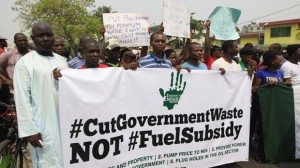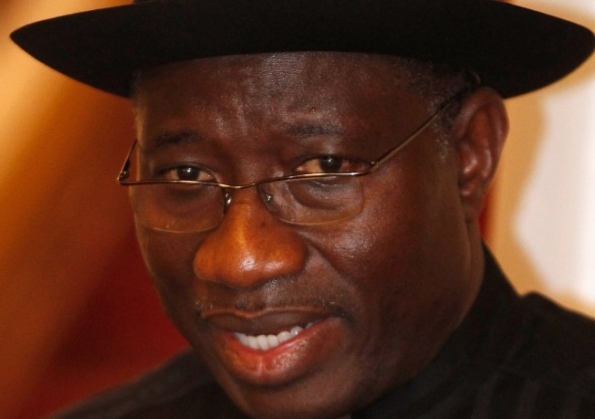
In the past 2 weeks, all that has filled our airwaves, media and social networks has been the raging issue of fuel subsidy withdrawal. The debates for and against are ever on-going, with those against unarguably being the larger numbers. Personally, I started by being vehemently against its removal as indicated in this October blog post of mine. After reading endless articles and engaging in debates about it, offline and online, I somewhat shifted ground a bit in my next article about it. I gradually shifted to being somewhat for it, but this article by Sanusi Lamido finally got me convinced about supporting the withdrawal. The article answered for me all my questions and reservations.
My main bone of contention is the timing of the withdrawal, as January is the worst month to do so. Families are coming from Christmas spending, and thinking about paying for school fees, and now, they have to face price hikes almost across board. The earlier agreed date of April 1 would have been much better. This is not to say that April 1 removal would not have brought about such opposition, because any tampering with fuel price is always unpopular. The concerns of those against it are very legitimate: widespread poverty, endemic corruption in the system, it being the only welfare Nigerians receive from their wealth. This is also because NLC as a body is opposed to any price hike from an ideological perspective.
Fast forward to today, and after endless negotiations, the Federal Government has shifted ground and has pegged the price at N97/litre. Not only that, the Ministry of Petroleum has also announced moves to probe the importations and allegations of corruption, as well as pressure the National Assembly to pass the long-awaited Petroleum Industry Bill. Also, the President and cabinet are now making cuts in their pay, starting from a 25% cut in salaries. Though tiny, considering that allowances are the bulk of the pay, it is a start nonetheless.
For me, this represents a victory of sorts. From day one, I realized that N65/litre as an official price is gone forever. Not only that, it takes someone who is either very sure of what he is doing or totally devoid of wisdom and leadership skills to look at the strong opposition to such policy move and still go on with it. I would like to give the President the benefit of the doubt that he belongs to the latter group, and that he is someone who knows the catastrophic effect this would have on Nigeria should this fail.
For those who remain hard and solid on the view that the former price must be reverted to because of the hardships that would be felt and until the time is right for the removal seem to be missing the big picture to me. We could go back to the former price and be satisfied with the crumbs from the table falling to us in the form of subsidy, while the corruption in the system, not just the petroleum sector, and the fat pay politicians receive continue. On the other hand, we could take this agreed price and continue to apply pressure to bring accountability and transparency in government, a reduction in size and expenditure and for them to deliver on their promises.
Like I mentioned in a previous article of mine, fuel subsidy removal has galvanised the people to begin to speak up louder on issues beyond just fuel subsidy, but on the larger, surrounding issues. Receiving dividends of governance in fuel subsidies is a low-hanging fruit, and while we concentrate on that one, we could end up missing the higher, juicier fruits.
In the scenario where government reverses itself completely and we go back to N65/litre, the strike ends, the protests stop and we all go back to life, happy to have scored a victory, albeit a pyrrhic one. However, the pressure the government has been feeling to reform itself would be gone, and it will be back to business as usual for them. But with this scenario, the anger if properly channelled would go a long way to making government open up and reform, as we can see that already happening with the small starts they have made.
Rather than maintaining a demand for the price of N65/litre, we should shift the focus to a demand for good and accountable governance. This is because under the current situation, even N30/litre is too expensive with this level of bad governance.
Change, especially the sustainable, positive one, does not come instantaneously. We should applaud every small progress, without taking our eyes off the desired destination. Any attempt to veer off track must be resisted.
This change works for me, as far as the big picture vision is concerned.
